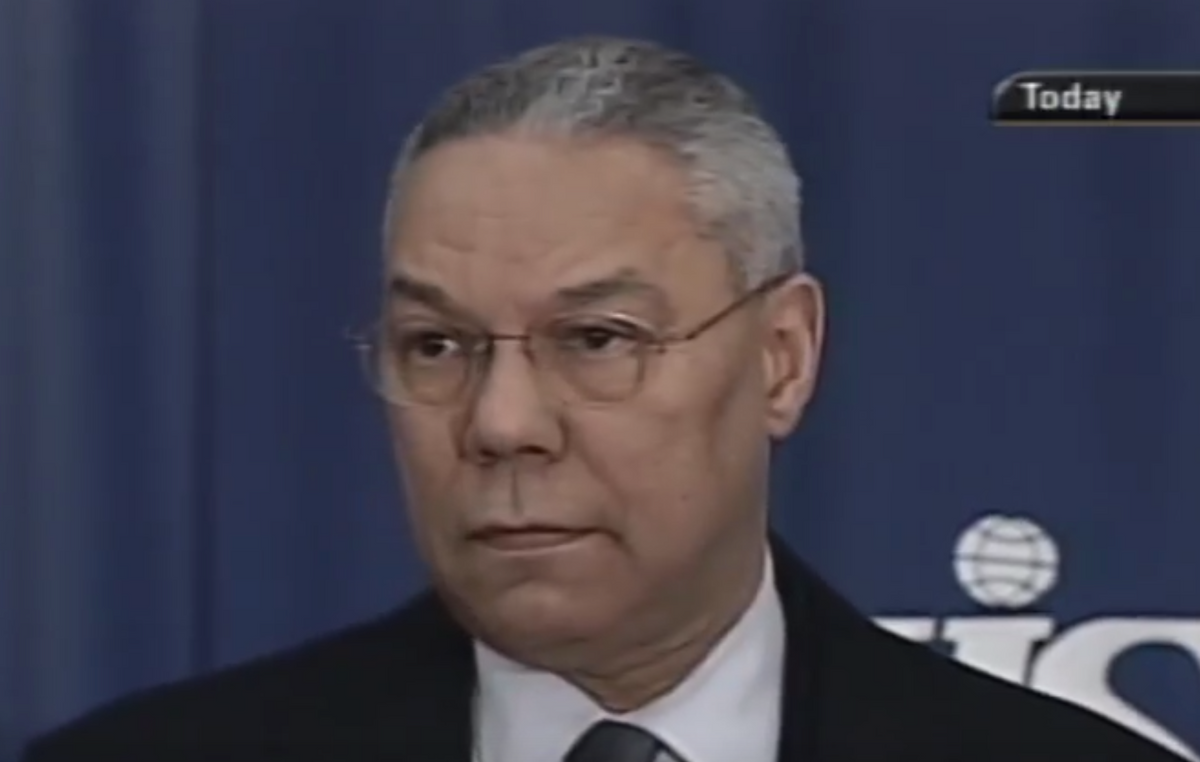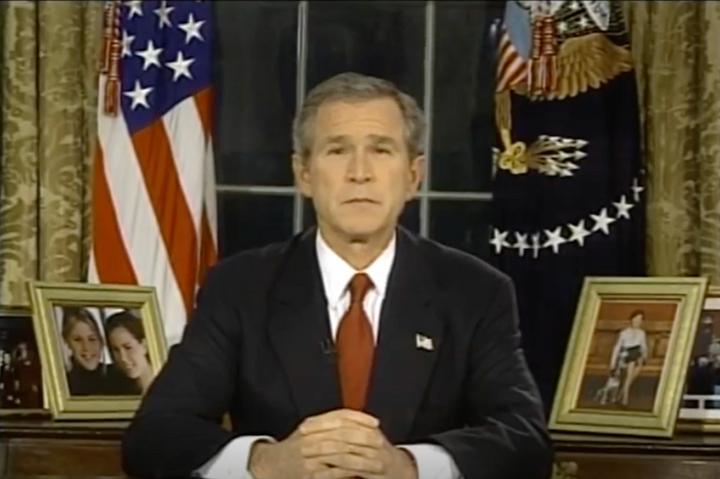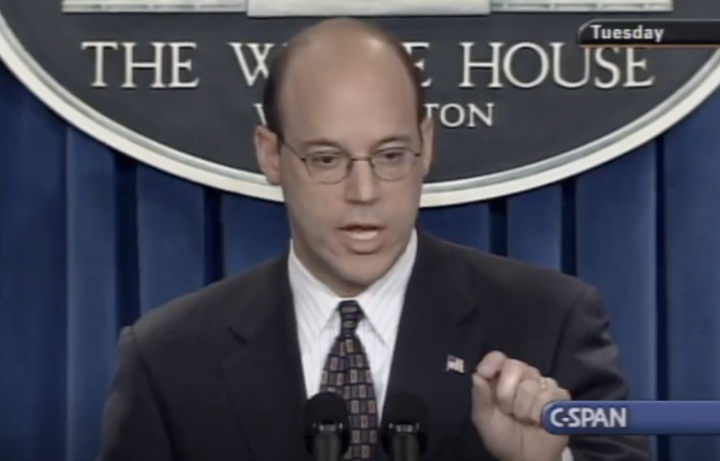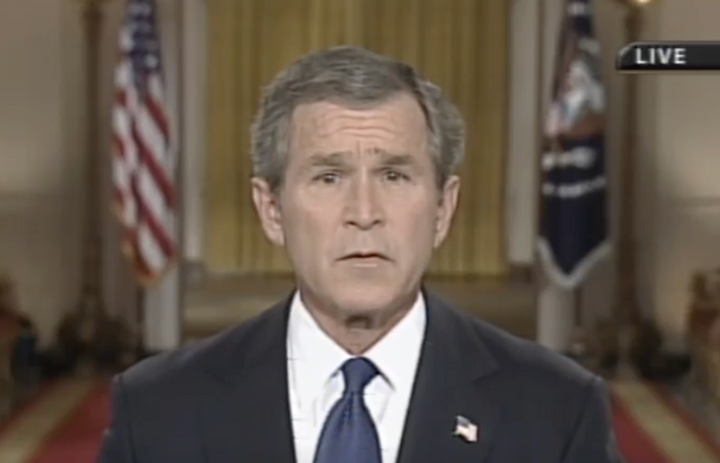March To Iraq War, 20 Years Later: March 4, 2003
The Dissenter Newsletter recalls each day in the timeline of events that led up to the US invasion of Iraq on March 19, 2003, twenty years ago

Note: This series is published exclusively for subscribers of The Dissenter. Thanks for your interest in journalism on whistleblowers and related press freedom issues.
The world will mark the 20th anniversary of the United States invasion and occupation of Iraq in about a month. It was the second war waged by the US against Iraq.
To reflect on this history, The Dissenter recounts the timeline of events that led up to the invasion on March 19. Each post encapsulates what took place that day as both political and media elites beat the drums of war.
***
MARCH 4, 2003: US Secretary of State Colin Powell insists that President George W. Bush’s administration “would prefer not to have a war.”
"[But] when you have a regime like Saddam Hussein's, which has essentially said, I don't care, I don't care for the past 12 years what I have been told to do. I am a dictator, I am a despot, I do terrible things to my people, I'm developing these weapons of mass destruction and I don't care what the rest of the world thinks—When you're faced with that kind of a situation and when you have laid down the rule in Resolution 1441 that he must comply, and he still does not comply, then unfortunately, war becomes an option."
Powell continues, “This man must be disarmed for the safety of the region and for the safety of the world, and he will be disarmed—peacefully, hopefully, but if necessary, the United States is prepared to lead a coalition of the willing, a coalition of willing nations, either under U.N. authority or without U.N. authority, if that turns out to be the case, in order to disarm this man. And it will be a peaceful world, a less threatened world, if he is disarmed and it'll be a better future for the people of Iraq if that's what comes in their future."
Defense Secretary Donald Rumsfeld tells the BBC the destruction of missiles is too little too late. “It is such a reluctant process that it would take so many years to ever really believe you had done the task of disarming.”
Former United Nations ambassador Jeane Kirkpatrick contends on MSNBC’s “Countdown: Iraq” that the U.S. has been blocked from obtaining another United Nations Security Council resolution that will justify regime change in Iraq, and Bush officials should proceed without it.
“Let me remind that you when we went to war, I guess Kosovo, against Serbia, over Kosovo, we didn't have a U.N. authorization,” Kirkpatrick recalls. “You know, Bill Clinton, then President of the United States, simply decided that was the way to go because he knew that Russia would veto if we submitted a resolution to the Security Council.”
Meanwhile, according to the same MSNBC war program, the Kurds in northern Iraq are protesting any intervention by the United States. Turkey remains opposed to having troops stationed in their country.
Martha Brandt of Newsweek reports on a “secret military base” that will be the headquarters for U.S. Central Command’s headquarters. They are not entirely operational yet, but they did a “test of their anti-disinformation campaign.”
“When Saddam Hussein claimed that the United States killed civilians [in an air strike], they were able to snap into high gear,” Brandt claimed. “And of course, that's part of the reason the Pentagon wants us here, is to be able to counter the disinformation they think that Saddam Hussein is going to be putting out in the region.”




Comments ()